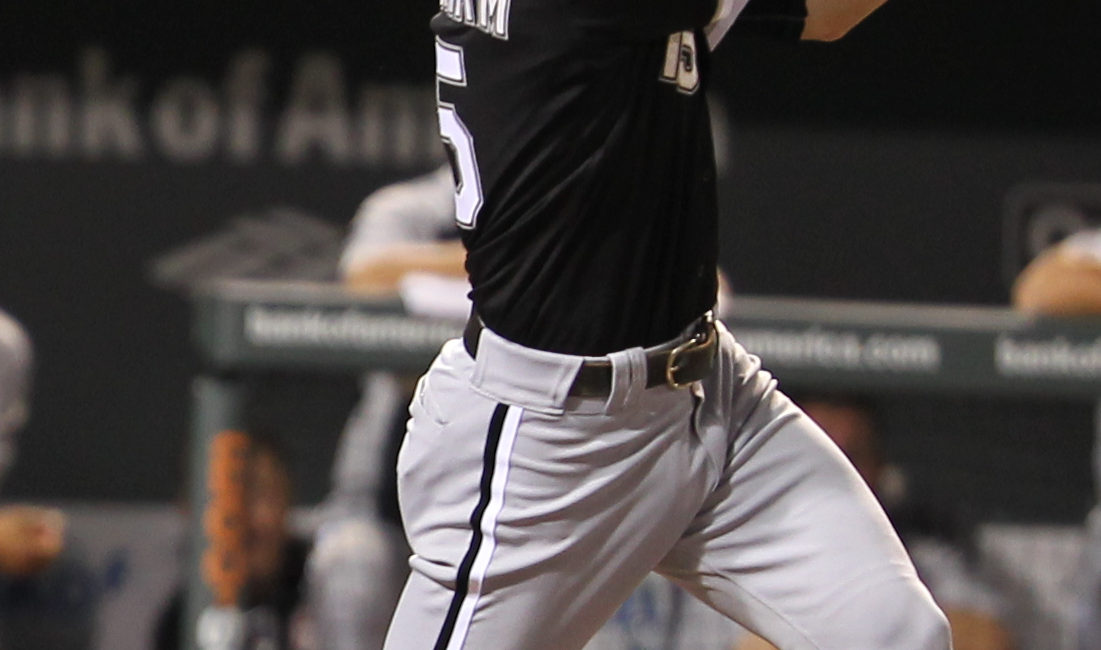In 45 games between June 13 and Aug. 4 of 2009, Gordon Beckham hit .358 (OPS of .995) with 17 doubles, 6 home runs and 38 RBI.
The No. 8 overall pick in the previous year’s draft officially was a phenom.
I openly likened his stature, stance and ceiling to Paul Molitor. Craig Biggio was another comp being thrown around. Some on the radio station said they wouldn’t trade him for then-San Diego trade bait Adrian Gonzales.
Hawk Harrelson said Beckham had a great “baseball face.” My show partner deeply admired his hair.
Season 2 brought a lot of public accessibility, including a weekly radio hit on our show. Gordon was everywhere, a precocious face of the franchise.
But he never approached that first summer of his baseball career. Five years later, Beckham has been sent in a waiver trade to the Los Angeles Angels for unspecified refuse, and we’re left to figure out how his value got so low.
We wonder why he never learned to be a big-league hitter.
Those weekly interviews often were painful. It’s not that Beckham wasn’t affable, likable, smooth and willing. In that 2010 season Beckham was hitting under .200 on June 1. The OPS was .561 on July 1.
His swing was exposed as incredibly long. It took far too much time for his bat to come through the hitting zone. The data says he never figured out how to consistently make good contact against a decent fastball.
He internalized failure deeply, something White Sox general manager Rick Hahn noted this week. When I would ask Gordon about his struggles in that second season, I could tell how lost in them he was.
The man was overwhelmed, experiencing his first athletic struggles at the highest possible level.
Beckham would hint at something specific he might change, but then always talk about “getting back to being myself” or “just be me.”
He did change some specifics through the years. You remember the crouch. The hands would move up … or down.
But the swing never got shorter; the contact rate never really went up. Every season there was an annual glimpse of possibilities. This year’s came in the No. 2 spot, as pitchers everywhere decided to challenge him instead of emerging superstar Jose Abreu.
But the White Sox never dealt him during one of those stretches.
We stopped the weekly interviews after one season. During a hot stretch his name would be suggested as a guest. I always cringed, and told the listeners I thought our talks screwed him up.
It was a tongue-in-cheek bit that deep down I thought of as a truism: Beckham discussing his struggles only made them more difficult to overcome.
“Hey, Gordon, you obsess over failure too much. Let’s talk about it on the air.”
And his brain didn’t help him.
So what’s to be learned here?
1. This game is brutal. And cruel.
2. The truly great organizations know how to trade a prospect that might be a bust before the rest of the league figures it out. The Sox should have struck quicker.
3. A slower development track is not to be derided. Beckham had just 312 minor league at bats. If time allowed pitchers to find his weakness at Class AAA, maybe he could have worked on it more calmly.
I don’t think Gordon Beckham will be one of those discarded 27-year-olds who figure it out somewhere else, but I’d be happy for him if he does.
Just don’t ask me to put him on the show.


